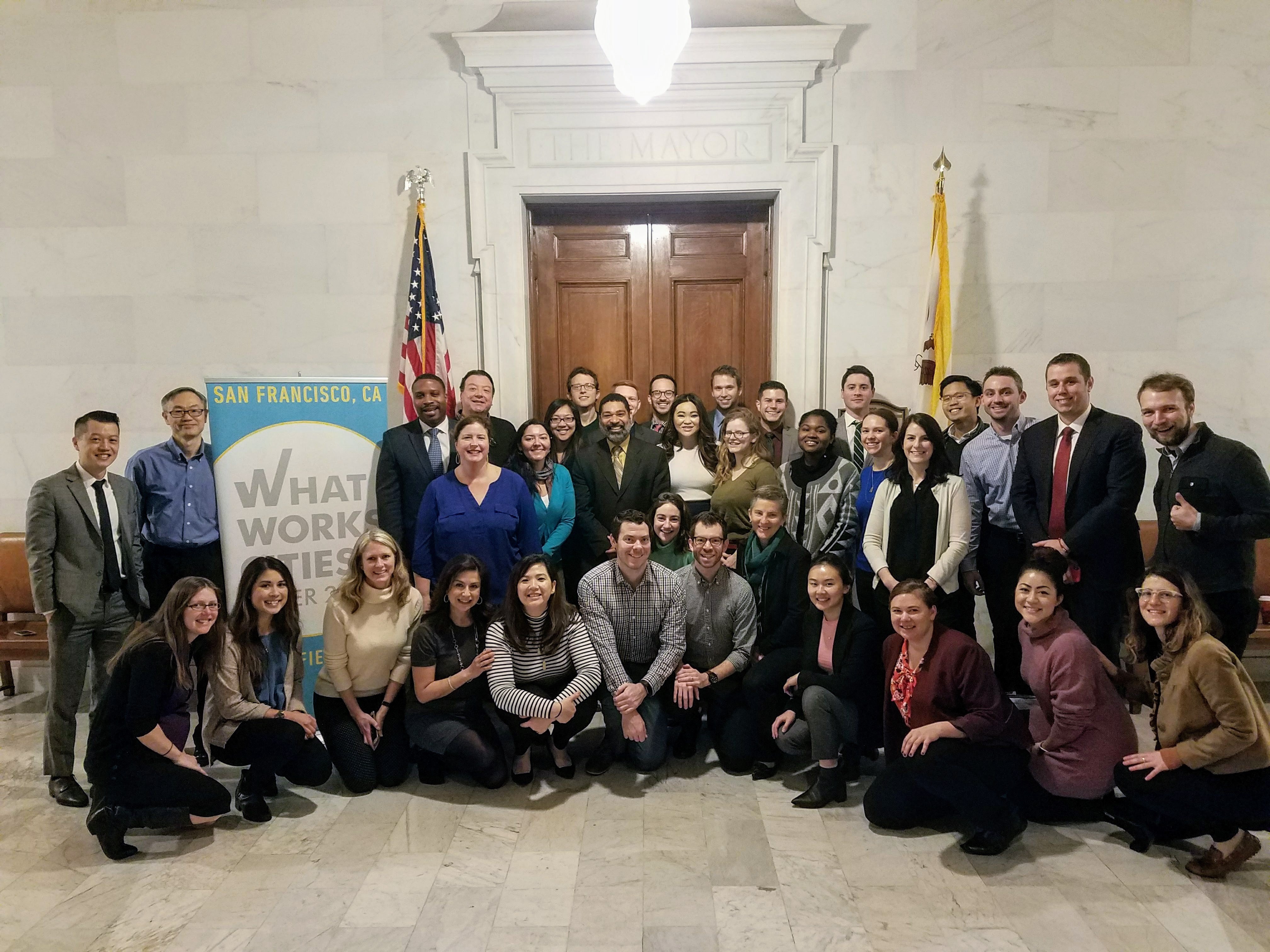Today we are excited to announce that we are part of the inaugural list of cities receiving the What Works Cities (WWC) Certification.
We want to offer our congratulations to our many City partners who do this work day in and out and helped contribute to making San Francisco What Works Cities Certified: Controller’s Office and SF Scorecards, City Administrator, and our many department partners.
We wanted to take a moment to articulate why we think this is important in our ever-evolving quest to transform government in the 21st Century to be smarter and more responsive to the needs and expectations of our residents.
This is why the What Works Cities Certification matters:
A framework for government. Anyone who thinks the management approaches of the private sector translate perfectly to the public sector is either kidding themselves or has never had the pleasure of attempting that translation.
Someone once told me that working in government was like being on a bus where everyone had a brake pedal. I mostly agree.
Approaches from the private sector need to be modified to take into account the facets of government, including procurement and hiring rules designed to addressed corruption and fair play; outcomes that are complex, hard to reach and often years out; and an ever changing coalition of collective input.
Political durability. Yesterday, we met our third boss in six weeks. So, we’re freshly qualified to speak on the importance of an external standard that can serve as a guide, regardless of who is in charge. As part of the Harvard Data-Smart Civic Analytics Network, we talk a great deal about continuity between administrations. The WWC Certification provides a powerful tool to support that work.
External validation process. To become WWC Certified, we were subject to an external review process. While the certification process started with self-reporting, we needed to provide artifacts that substantiated our claims. As we progressed in the process, the substantiation become more detailed and included a site visit and detailed interviews and reviews. This external validation provides consistency, reliability and credibility to the process.
For these reasons and more, I’m a big supporter of the standard as a collective maturation forcing function. A few thoughts on how it can continue to evolve:
Independent board. An independent board, similar to ISO or other standard groups, could help evolve the certification criteria and leverage expertise from multiple partners, including academia, other foundations, City driven leadership networks, practitioners and more.
Space for innovation. The certification criteria are thoughtful and comprehensive. However, the risk with any standard is that it stifles creativity in how to address an issue. Perhaps some clever city will come up with an approach that subverts the need for a specific criteria. We should reward and encourage that.
Certification criteria toolkits. Specific guidance, toolkits and examples for how to achieve the certification criteria and what excellence looks like will speed the learning and execution for jurisdictions. I do believe this is planned and look forward to learning more.
My one regret is that Mayor Lee, who recently passed in December, was not able to celebrate this milestone. Much of what allowed us to be certified was due to his thoughtful, patient focus on what it means to be well-governed. We are working on a data homage to Mayor Lee, but in the meantime, we dedicate this to him.
Read more about San Francisco’s certification.
